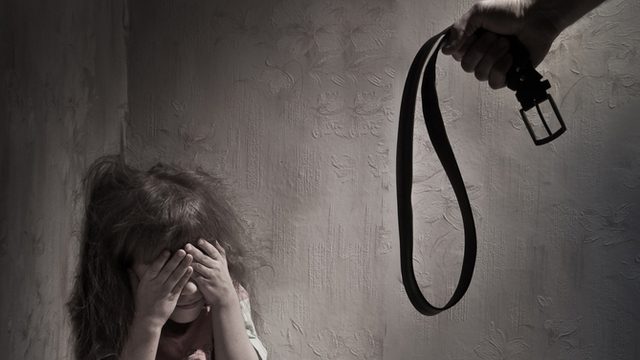SUMMARY
This is AI generated summarization, which may have errors. For context, always refer to the full article.

MANILA, Philippines – Do you agree with corporal punishment?
In time for the upcoming final State of the Nation Address (SONA) of President Benigno Aquino III, child-led organizations wrote an open letter addressed to the president on Monday, July 20, pleading to end all forms of corporal punishment in the country.
“Corporal punishment” includes spanking, pinching, and whipping with a belt. Studies from the United Nations Children’s Fund (UNICEF) have shown that around 17% of children across 58 countries have been subjected to severe forms of physical punishment.
Advocates sought for the passage of the Anti-Corporal Punishment or Positive Discipline Bill, which is currently pending at the Senate Committee on Women, Family Relations, and Gender Equality.
The open letter’s signatories include: Ang Karapatan ng Kabataan Ating Protektahan (AKKAP), Active Youth Movement (AYM), Youth Meets the Children Organization (YMETCO), and Children and Youth Organization (CYO).
The letter was envisioned during a workshop organized by Save the Children. It was also co-signed by a representative of the National Anti-Poverty Commission’s Children Basic Sector.
Passing down punishments
According to a briefer released alongside the open letter, 85% of Filipino children are punished at home.
Why do corporal punishments continue? Because of the persistence of cultural beliefs, a 2008 study by Save the Children-Sweden reported. Some adults believe that punishment is the most effective means of instilling a sense of right and wrong among children. There is also a belief that parents have the right to exercise authority over their children – a right that is often abused. These beliefs are passed on through generations; adults who underwent corporal punishment do likewise to their own children.
However, more than 150 studies have concluded that there are no long-term benefits from using corporal punishment. According to UNICEF, there are studies that saw a correlation between rates of corporal punishment and violence – children who were physically punished often ended up engaging in violent crime themselves.
Meanwhile, the Global Initiative to End All Corporal Punishment of Children cited other negative impacts of corporal punishment like damaged education and family relationships, as well as increased antisocial behavior and aggression. (READ: Power of positive parenting)
“We might forever think that our parents do not love us because of their hurtful way of disciplining us. We might forever be afraid to move, try, and make mistakes because of this,” the open letter stated in Filipino.
Beyond the persistence of cultural beliefs, however, many studies like those of Save the Children-Sweden’s stress that the lack of explicit legislation contributes to the prevalence of corporal punishment.
Laws and punishment
While the Philippines is a signatory in the UN Conventions on the Rights of the Child, there is no explicit ban on corporal punishment, unlike 46 nations that have done so.
The Philippines does have laws intended to protect children such as Republic Act 7610 or the Special Protection of Children Act, in which cruelty is seen as a form of child abuse. It also has the Revised Penal Code, which does not excuse punishment for physical injuries from parental chastisement. These laws do not clearly ban corporal punishment in all settings. (READ: Ending corporal punishment in PH homes)
But there are a number of pending bills that child-led and children’s rights groups are hoping to soon pass.
In December 2014, the Congress approved House Bill 4907 or the Positive and Nonviolent Discipline of Children Act, which promotes non-violent forms of discipline and outlaws all corporal punishment.
Counterpart bills are also pending in the Senate. In 2013, Senators Nancy Binay and Jinggoy Ejercito-Estrada filed separate Anti-Corporal Punishment bills, Senate Bill (SB) 227 and 363, respectively. In the same year, Senator Miriam Defensor-Santiago filed SB 399 to amend the Family Code in order to prohibit corporal punishment. Senator Cynthia Villar also pushed for an Anti-Corporal Punishment Law in 2014 as SB 2182.
“The Anti-Corporal Punishment and Positive Discipline Bill is the key to completely end corporal punishment or the harsh disciplining, humiliation, and punishment of children – so that no child will be hurt,” the petition from the child-led organizations argued. — Rappler.com
Frances Sayson is a Rappler intern.
Corporal punishment image via Shutterstock.
Add a comment
How does this make you feel?
There are no comments yet. Add your comment to start the conversation.